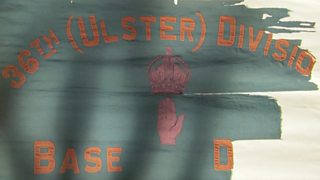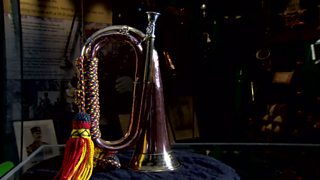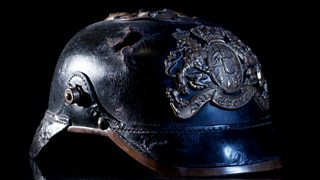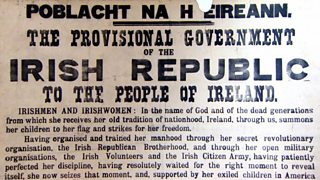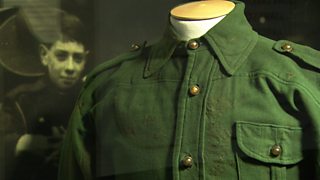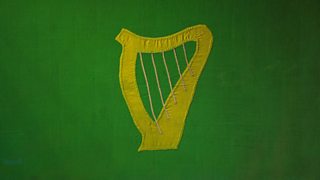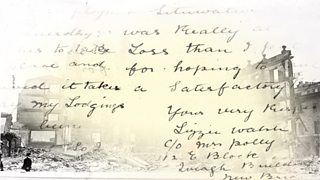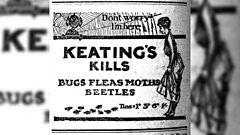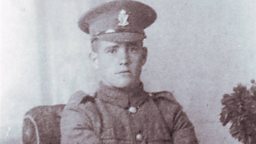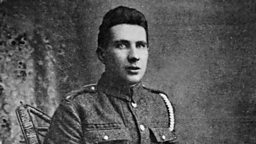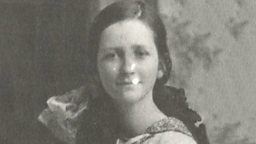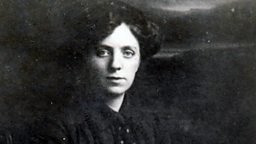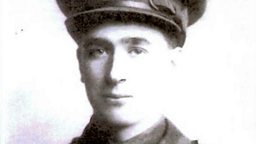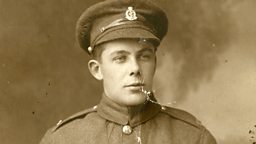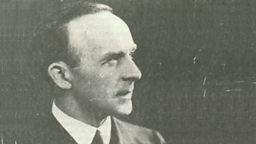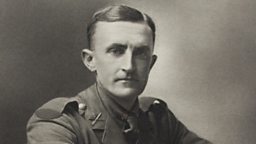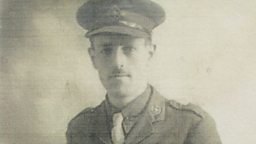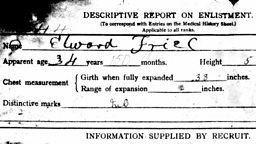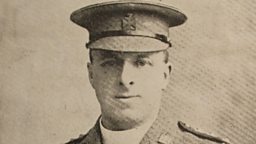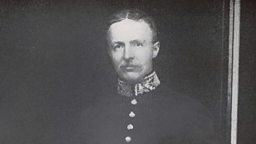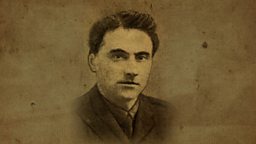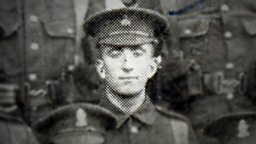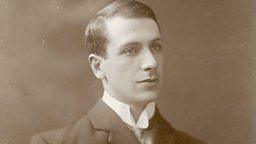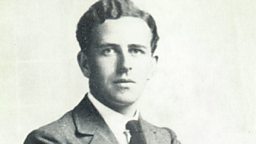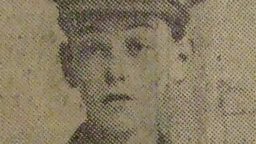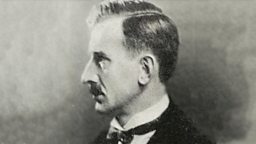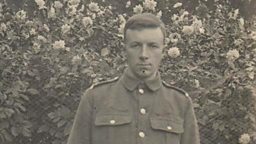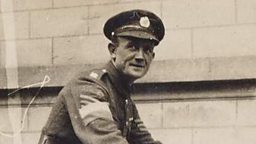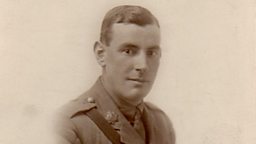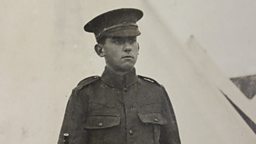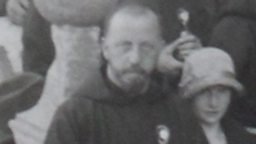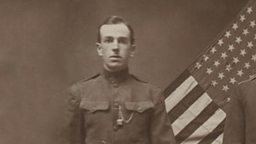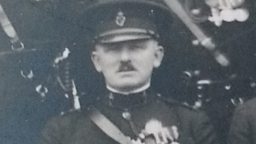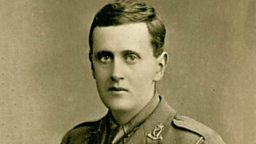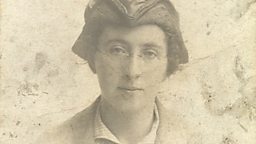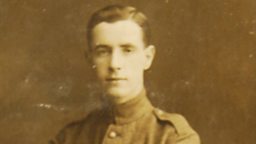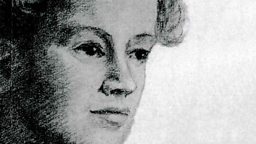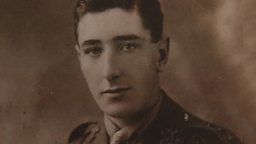F P Crozier
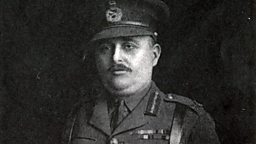
A very military man
Francis ‘Frank’ Percy Crozier was born in 1879 in Bermuda to a military family, and spent time as a child with family in Ireland. As a young man Frank determined to follow in the family tradition. He was first commissioned into the Army in 1897.
You must steel your hearts and minds to be callous of life or death
He served in the Boer War, and later saw active service in West Africa. Then, in difficult straits due to financial imprudence, he resigned his commission in 1909, the second time he had done so. Subsequently going through bankruptcy proceedings, Crozier then went for a brief period to live in Canada.
Returning in 1911, Crozier subsequently joined the West Belfast Regiment of the Ulster Volunteer Force c. 1913, “in defence of Ulster and the Union. Their troubles have been my troubles, their triumphs my triumphs, their secrets my secrets”, he wrote, saying “for seven months, in time of anxiety, I have served with trained and commanded a small body of men …”
But in 1914 came the outbreak of WW1, and, Crozier writes, “all is changed within a flash. Ireland is united against a common foe. Our task is manifest, our duty clear. ‘Allons’ is our cry.”
9th Royal Irish Rifles
With the formation of the 36th (Ulster) Division, Crozier noted “My West Belfast irregulars have become the 9th battalion Royal Irish Rifles.” He himself was reported temporary captain, Service Battalions, in the London Gazette and was, it appears, appointed to the 5th Royal Irish Fusiliers.
This appointment was later cancelled. Crozier says he resolved to “make a bold bid to remain with my Shankill Road boys”, and a subsequent Gazette reported he was appointed Major, Second in Command on 4th September, 1914 with the 9th Royal Irish Rifles.
Early on, he encountered David Starrett, a 16 year old from Belfast, who he appointed his batman or personal assistant; the two would serve together throughout the war.
Of Starrett, he said he “… became my personal help in 1914 because of his reliability. He was a total abstainer, unshackled to drink, and remained with me until 1919, by which time he had become my friend, confidant and universal provider …”
Of his appointment, Crozier says, “It is no easy task to knock a thousand men into orderly shape”, but that he, along with his Colonel, decided to “concentrate on two things at the outset; knocking the beer and politics out of all ranks and building up esprit-de-corps in its place on the one hand, while on the other we foster, inculcate, teach and build up the blood lust for the discomfiture of the enemy, without which no war is possible … and no victory certain …”
Despite Crozier’s efforts, he describes discipline problems on arrival in France. In November 1915, the 107 Brigade of which the 9th Royal Irish Rifles was part, was summoned he says for temporary “Banishment – to the 4th Division!”
In January 1916, Crozier, still with the 9th Royal Irish Rifles, was promoted to temporary Lieutenant-Colonel while commanding a Battalion, and early in February 1916, their Brigade returned to the 36th (Ulster) Division.
Execution
Shortly after Crozier was made Commanding Officer of the 9th Royal Irish Rifles, two of his men he says went absent.
One of the men was a young private by the name of James Crozier, no relation, called ‘Crocker’ in Crozier’s memoir. The other was an officer, Arthur Annandale, whom he calls ‘Rochdale’.
Regarding the officer, Crozier says, “I see him and put him back for trial by court martial for cowardice and desertion. He is tried and found guilty …”
The private was also tried, he says, continuing, “I sign the charge sheet of both these men … One day we received a wire. Rochdale is to be ‘released from arrest and all consequences.’ They try to send him back to duty but I refuse to receive him.”
Crozier is then, he says, asked his opinion “as to whether sentence of death should be carried out on Crocker. In view of certain circumstances I recommend the shooting be carried out.”
After sentencing of the prisoner, Crozier says, “He does not flinch. Perhaps he is dazed: who would not be? … We all feel bad but we carry out our war-time post.” Crozier talks to the padre, saying: “I don’t think his people should be told. He can go into the ‘died’ return. War is all pot-luck, some get a hero’s halo, others a coward’s cross. But this man volunteered in ’14. His heart was in the right place then, even if his feet are cold in ’16.
He continues: “… in peace time, I and the rest of us would have been very upset indeed at having to shoot a colleague … Now the men don’t like it but they have to put up with it …”
Crozier then describes the execution: “… I arrange that enough spirituous liquor is left beside him to sink a ship. In the morning at dawn … as he is produced I see he is practically lifeless … He has already been bound with ropes. There are hooks on the post; we always do things thoroughly in the Rifles. He is hooked on like dead meat in a butcher's shop … The men of the firing party pick up their rifles, … and, on the lowering of a handkerchief by the officer, they fire … “
“There is a pause, I wait. I see the medical officer examining the victim. He makes a sign, the subaltern strides forward, a single shot rings out. Life is now extinct. We march back to breakfast while the men of a certain company pay the last tribute at the graveside of an unfortunate comrade. This is war.”
The Somme
1 July: Night Before
Crozier was Commanding Officer of the 9th Royal Irish Rifles on July 1, 1916, the first day of the battle of the Somme.
The night before, he says “I spend much of the night” with Colonel H.C. Bernard, of the 10th Royal Irish Rifles, “resting against a tree trunk, eating sandwiches and drinking tea.”
Bernard is doubtful, he says, that one of their flanking divisions will succeed, and they agree that if they find that Thiepval Wood “is still in enemy hands, we shall meet in no man’s land, to alter our plans, if necessary. If only one of us arrives there, then it will be up to him to carry on for both battalions. If neither of us gets as far, then the senior officers present will carry on … and then we change the subject.”
1 July: Zero Hour
That morning, he says, “The whistle blows. The men fall in, in fours, in their companies … Zero hour is at 7.30 am. All is quiet on the western front … I place myself at the head of the valiant gang. How proud I am.”
Then “Suddenly the air is rent with deafening thunder; never has such man-made noise been heard before! The hour has struck! 7.30am has arrived. The first wave goes over … Instantly the enemy replies … that half hour is the worst on record, for thoughts and forebodings; so we sing … At last our minute, our own minute arrives. I get up from the ground and whistle.”
As they move off, he says he glanced to the right, and through a gap in the trees, “I see rows upon rows of British soldiers lying dead, dying or wounded in no man’s land … enough to convince me Thiepval village is still held … I look southward from a different angle and perceive heaped up masses of British corpses suspended on the German wire in front of the Thiepval stronghold …”
And, he says, “We march on …”
Under attack
“Machine guns open fire on us from Thiepval village … pit, pit, the bullets hit the dry earth all round. The shelling on to the wood edge has ceased. The men emerge. ‘Now’s the chance,’ I think to myself, ‘they must quicken the pace and get diagonally across to the sunken road, disengaging from each other quickly, company by company.’
Then, he recalls, “The German shelling ceased for five minutes, we hurried through the gap of mercy, and as Major Woods, bringing up the rear, was just clear … the shelling started again.”
The battalion is, he says, “enfiladed from Thiepval village while field guns open on them from the front … they can’t stay here. Where is Colonel Bernard? … I find a few men of the 10th, and attach them to the right of my line. I blow shrill whistle calls and signal the advance. They go on their last journey …”
Dead and Wounded
Crozier says: “And what of the dead and wounded? This spirited dash across no man's land, carried out as if on parade, has cost us some fifty dead and seventy disabled. The dead no longer count. War has no use for dead men. With luck they will be buried later; the wounded try to crawl back to our lines. Some are hit again in so doing, but the majority lie out all day, sun-baked, parched, uncared for, often delirious and at any rate in great pain.”
“Meanwhile, I mount the parapet to observe. The attack on the right has come to a standstill; the last detailed man has sacrificed himself on the German wire … Thiepval village is masked with a wall of corpses …”
He discovers, “Colonel Bernard is no more. The colonel and half his men walked into the barrage of death during the advance …”
But, Crozier says, “The tedium of the battle continues.”
Late Afternoon
In the late afternoon, Crozier recalls, “… a strong rabble of tired, hungry, and thirsty stragglers approach me from the east. I go out to meet them. 'Where are you going?' I ask. One says one thing, one another. They are marched to the water reserve, given a drink and hunted back to fight.”
Then, he says: “Another more formidable party cuts across to the south. They mean business. They are damned if they are going to stay, it's all up. A young sprinting subaltern heads them off. They push by him. He draws his revolver and threatens them. They take no notice. He fires. Down drops a British soldier at his feet. The effect is instantaneous. They turn back to the assistance of their comrades in distress. It is now late afternoon.”
Curtain Rings Down on Hell
The fighting, says Crozier, continued: “Most of my officers are dead and wounded. I send for twelve more who have been held in reserve, to swell the corpse roll. Other reinforcements arrive only to be thrown into the melting pot for a similar result. The Germans launch an overwhelming counter-attack which proves successful. They win – to suffer later.”
Finally, he recalls, “At 10 pm the curtain rings down on hell. The cost? Enormous. I have seventy men left, all told, out of seven hundred.”
“… was there ever such a day? Not in my recollection.”
After the Somme
Promotion
Crozier remained with the 36th (Ulster) Division for a few more months. In the autumn of 1916, he was promoted to the rank of Brigadier-General, in charge of the 119th Infantry Brigade in the 40th Division, and remained with them to the end of the war.
Crozier received the Distinguished Service Order in 1917, and was created CMG (Companion, Order of St Michael and St George) in 1918, and C.B. (Companion, Military Division, Order of the Bath), in 1919.
He was also awarded the Croix de Guerre.
Armistice
Of the Armistice, Crozier writes, “Only those men who actually march back from the battle line on 11th November, 1918, can ever know or realise the mixed feelings them in the hearts of combatants. We are dazed … no fighting man worth his salt desired at that moment to do anything but forget the past and forge the future.”
He goes to “’Wipers’ to see the ruins. I walk over the battlefields of Thiepval, Bourlon, Ervillers, Mory, the Lys and the Somme, for the last time. The silence in these places is uncanny …”
Writing in 1930, he concluded, “There must never be another grand parade. It isn’t worth it!”
After World War One
Crozier spent a brief period commanding 3rd (Reserve) Battalion, the Welsh Regiment in 1919. On 31 July 1919, on completion of service, he relinquished his command and was granted the honorary rank of Brigadier-General.
Efforts by Crozier to continue in the Army were unsuccessful, and his further career was turbulent.
Appointed Inspector General of the Lithuanian Army in 1919, he resigned from the position in March 1920.
Crozier then returned to Ireland, commanding the Auxiliary Division of the Royal Irish Constabulary. From this he resigned in February 1921 over an incident, highly publicised, regarding the military discipline of a number of his men, on which he said he felt himself to have been undermined.
Crozier went on to contest the Portsmouth Central seat in the 1923 General Election, standing for Labour, but was unsuccessful. He continued to have financial difficulties, which persisted into his later life, including further bankruptcy proceedings.
Pacifism
Crozier was involved in the League of Nations Union, which aimed to promote the principles of the League of Nations, including peace between nations.
In the later 1930s, he became associated with the Peace Pledge Union, which invited people to sign a declaration, “I renounce war”. Crozier became increasingly and fervently pacifist in his beliefs, speaking publicly about the need for world peace.
Writing career
Turning to writing, Crozier published a succession of books in the 1930s. The first, ‘A Brass Hat in No Man’s Land’, was a memoir of his WW1 experiences. Issued in 1930, it received considerable attention. Whilst some, including Robert Graves, reviewed it very favourably, others found the book’s uncompromising frankness shocking.
Crozier went on to write several others, including ‘Impressions and Recollections’ (1930), ‘Ireland for Ever’ (1932), and ‘The Men I Killed’ (1937). His writings often caused considerable controversy, especially the last, in which he claimed to have ordered the shooting of Allied Portuguese soldiers in 1918, as he perceived them to have been “near to losing much ground for us”.
Crozier’s former batman, David Starrett, became his literary executor. Starrett had gone on to work in the building industry, and continued to be supportive of Crozier until his death.
Death
Frank Percy Crozier died in August 1937. He had married twice, and had two children.
Voices 16 objects
Gallery
Credits
Image courtesy of the family of Frank Percy Crozier.
Account extracts from ‘A Brass Hat in No Man’s Land’, by Brigadier-General F.P. Crozier, first published in 1930 by Jonathan Cape.
Biographical information sources include:
Charles Messenger’s ‘Broken Sword, The Tumultuous Life of General Frank Crozier, 1879-1937’, Barnsley: Pen & Sword Books, 2013.
Philip Orr’s New Introduction to Crozier’s ‘A Brass Hat in No Man’s Land’, reissued Gliddon Books 1989, ‘Great War Classics’.
